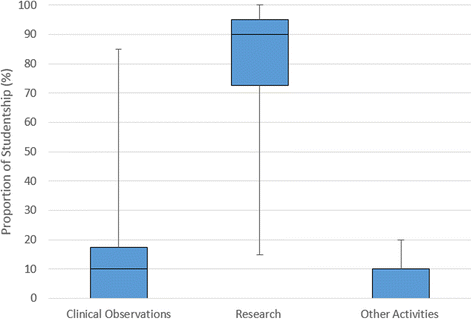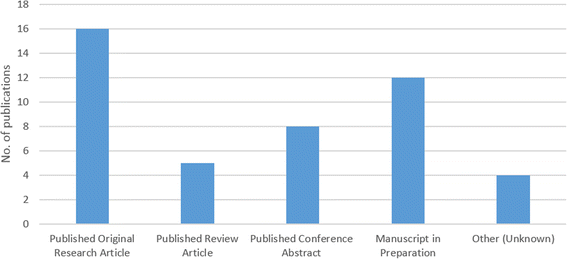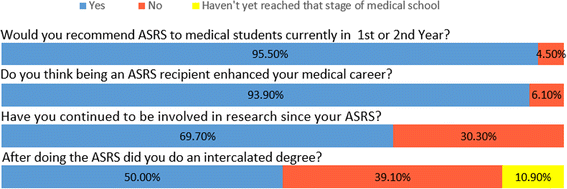The influence of early research experience in medical school on the decision to intercalate and future career in clinical academia: a questionnaire study
- PMID: 29228999
- PMCID: PMC5725945
- DOI: 10.1186/s12909-017-1066-1
The influence of early research experience in medical school on the decision to intercalate and future career in clinical academia: a questionnaire study
Abstract
Background: Currently, only one in three UK medical students undertake an intercalated degree. This has often been implicated as a result of financial obstacles or a lack of interest in research due to inadequate exposure to academic medicine. The aims of this study were to determine whether exposure to research early in medical school, through the initiation of an early years clinical academic training programme has a positive influence on the decision-making related to intercalating and a career long interest in research. This study also aims to evaluate the perceived views of the recipients of such a scholarship programme.
Methods: All previous recipients of the Aberdeen Summer Research Scholarship (ASRS) (n = 117) since its inception in 2010 until 2015 were invited via email in June 2016, to take part in the survey. Data were analysed using SPSS for quantitative data and a thematic approach was used to derive themes from free text.
Results: The overall response rate was 56% (66/117). Of the respondents, seven received the scholarship twice. Seventy-three percent were still at medical school and 26% were foundation doctors. One respondent indicated that they were currently not in training. Seventy percent of respondents have continued to be involved in research since completing the scholarship. Fifty percent embarked on an intercalated degree following the ASRS. Furthermore, two thirds of the respondents who were undecided about undertaking an intercalated degree before the scholarship, chose to intercalate after completing the programme. ASRS was generally thought of as a positive, influential programme, yet the success of individual ASRS projects was dependent on the allocated supervisors and the resources available for specific projects.
Conclusions: Our findings indicate that early research exposure in medical school can provide students with a positive influence on involvement in research and allows students to make an informed decision about embarking on an intercalated degree. We therefore recommend the encouragement of similar programmes in medical schools to promote clinical academia at an early stage for medical students.
Keywords: Academic medicine; Clinical academic training; Early research exposure; Intercalated degree; Student research.
Conflict of interest statement
Ethics approval and consent to participate
North of Scotland Research Ethics committee was satisfied that the project did not require ethical approval.
Consent for publication
Not applicable.
Competing interests
The authors declare that they have no competing interests.
Publisher’s Note
Springer Nature remains neutral with regard to jurisdictional claims in published maps and institutional affiliations.
Figures





References
MeSH terms
LinkOut - more resources
Full Text Sources
Other Literature Sources

